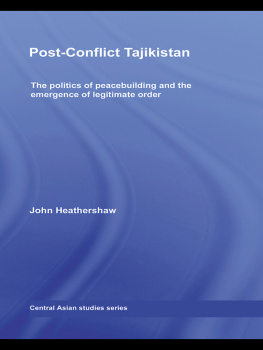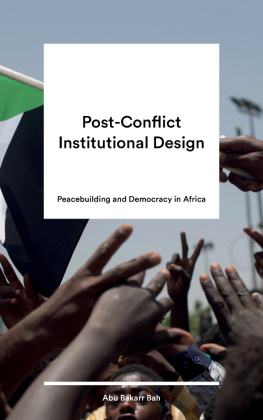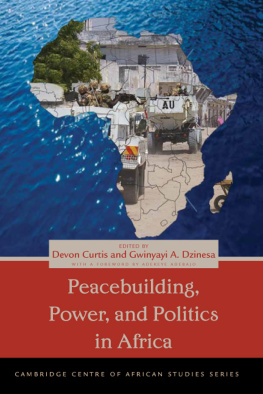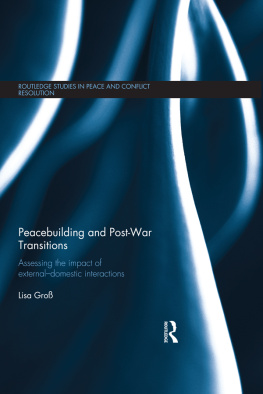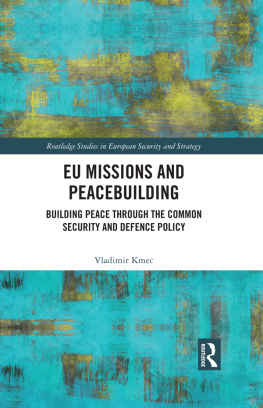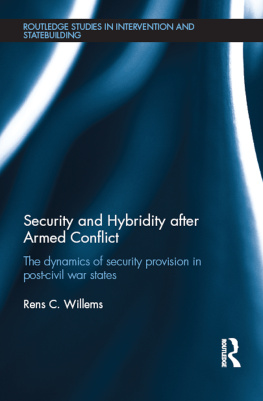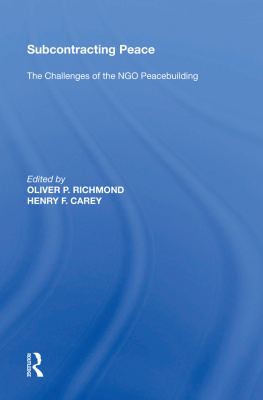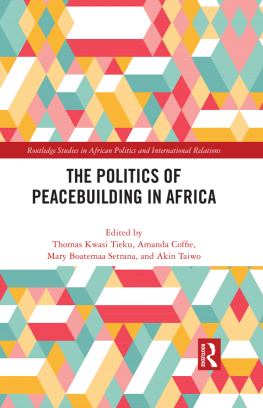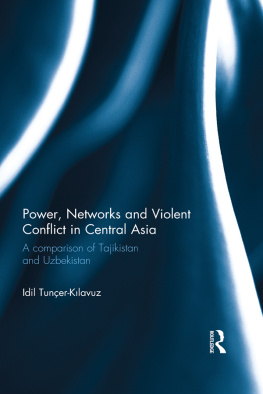Post-Conflict Tajikistan
Post-Soviet, post-conflict Tajikistan is an under-studied and poorly understood case in conflict studies literature. Since 2000 this Central Asian state has seen major political violence end, countrywide order emerge and the peace agreement between the parties of the 1990s civil war hold. Superficially, Tajikistan appears to be a case of successful international intervention for liberal peacebuilding, yet the Tajik peace is characterised by authoritarian governance.
Via discourse analysis and extensive fieldwork, including participant observation with international organisations, the author examines how peacebuilding is understood and practised in Tajikistan. The book challenges received wisdom that peacebuilding is a process of democratisation or institutionalisation, showing how interventions have inadvertently served to facilitate an increasingly authoritarian peace and fostered popular accommodation and avoidance strategies. Chapters investigate assistance to political parties and elections, the security sector and community development, and illustrate how transformative aims are thwarted whilst success is simulated for an audience of international donors. At the same time the book charts the emergence of a legitimate order with properties of authority, sovereignty and livelihoods.
Providing a challenge to the theoretical literature on peacebuilding and a firstever research monograph of post-conflict peacebuilding in this under-studied case, this book will be of interest to academics working on Peace Studies, International Relations and Central Asian Studies.
John Heathershaw is Lecturer in International Relations at the University of Exeter. His research interests include the politics of aid, development, peacebuilding and security assistance, with a focus on Central Asia.
Central Asian studies series
- Mongolia Today
Science, culture, environment and development
Edited by Dendevin Badarch and Raymond A. Zilinskas
- Turkestan and the Fate of the Russian Empire
Daniel Brower
- Church of the East
A concise history
Wilhelm Baum and Dietmar W. Winkler
- Pre-Tsarist and Tsarist Central Asia
Communal commitment and political order in change
Paul Georg Geiss
- Russias Protectorates in Central Asia
Bukhara and Khiva, 18651924
Seymour Becker
- Russian Culture in Uzbekistan
One language in the middle of nowhere
David MacFadyen
- Everyday Islam in Post-Soviet Central Asia
Maria Elisabeth Louw
- Kazakhstan
Ethnicity, language and power
Bhavna Dave
- Ethno-Nationalism, Islam and the State in the Caucasus
Post-Soviet disorder
Edited by Moshe Gammer
- Humanitarian Aid in Post-Soviet Countries
An anthropological perspective
Latitia Atlani-Duault
- MuslimChristian Relations in Central Asia
A. Christian van Gorder
- The Northwest Caucasus
Past, present, future
Walter Richmond
- Turkmenistans Foreign Policy
Positive neutrality and the consolidation of the Turkmen Regime
Luca Anceschi
- Conflict Transformation in Central Asia
Irrigation disputes in the Ferghana Valley
Christine Bichsel
- Socialist Revolutions in Asia
The social history of Mongolia in the 20th century
Irina Y. Morozova
- Post-Conflict Tajikistan
The politics of peacebuilding and the emergence of legitimate order
John Heathershaw

Post-Conflict Tajikistan
The politics of peacebuilding and the emergence of legitimate order
John Heathershaw
First published 2009
by Routledge
2 Park Square, Milton Park, Abingdon, Oxon OX14 4RN
Simultaneously published in the USA and Canada
by Routledge
270 Madison Ave, New York, NY 10016
Routledge is an imprint of the Taylor & Francis Group, an informa business
This edition published in the Taylor & Francis e-Library, 2009.
To purchase your own copy of this or any of Taylor & Francis or Routledges collection of thousands of eBooks please go to www.eBookstore.tandf.co.uk.
2009 John Heathershaw
All rights reserved. No part of this book may be reprinted or reproduced or utilised in any form or by any electronic, mechanical, or other means, now known or hereafter invented, including photocopying and recording, or in any information storage or retrieval system, without permission in writing from the publishers.
British Library Cataloguing in Publication Data
A catalogue record for this book is available from the British Library
Library of Congress Cataloging in Publication Data
A catalog record for this book has been requested
ISBN 0-203-87921-X Master e-book ISBN
ISBN10: 0-415-48403-0 (hbk)
ISBN10: 0-203-87921-X (ebk)
ISBN13: 978-0-415-48403-9 (hbk)
ISBN13: 978-0-203-87921-4 (ebk)
Preface
Well, Im not sure a bad election is good for peacebuilding. This was the remark of a senior officer of the OSCE election observation mission on discovering the topic of my research. It was 1 March 2005, two days after Tajikistans parliamentary elections, the second since the general peace agreement of 1997. I was listening to the perspectives of fellow observers on what had been peaceful but decidedly uncompetitive elections. What did this acute fusion of the non-violent and the non-democratic mean for post-conflict Tajikistan? The initial report of the observation team had praised the lack of violence and had couched concerns about official interference in typically formulaic and diplomatic language. Behind closed doors, many were more sanguine. The somewhat defensive tone and explicit scepticism which coloured these remarks struck me as significant. They seemed significant not for their half-hearted defence of the public protestations of the international community that Tajikistan must choose democracy, but for their uncertainty that this was even the right question to be asking. I too was not sure, and remain so, about what should or would be the future for post-conflict Tajikistan. Moreover, I felt that in our ambivalence, the election monitors and I were accompanied by most if not all of those in the international community, in Tajikistans political elite, and in the population. What, I was led to ask, are the implications of this disaffection towards our description and prescription of peacebuilding and our understanding of peace as a value, ideal and state of affairs.
There are many who have assisted, advised and otherwise helped since I began researching Tajikistan in 2001. Mark Hoffman provided consistent encouragement and support for my ideas throughout my dissertation research. At the LSE, I was fortunate to be among a peer group of extremely able PhD students including Antoine Bousquet, Douglas Bulloch, Stacy Closson and Steffi Ortmann. I received helpful comments from scholars of peace studies at the Kroc Institute, Notre Dame, where I conducted post-doctoral work. Particularly insightful have been remarks from Scott Appleby, Jennie Burnet, John Darby, David Montgomery, Svetlana Peshkova and Peter Wallensteen.

